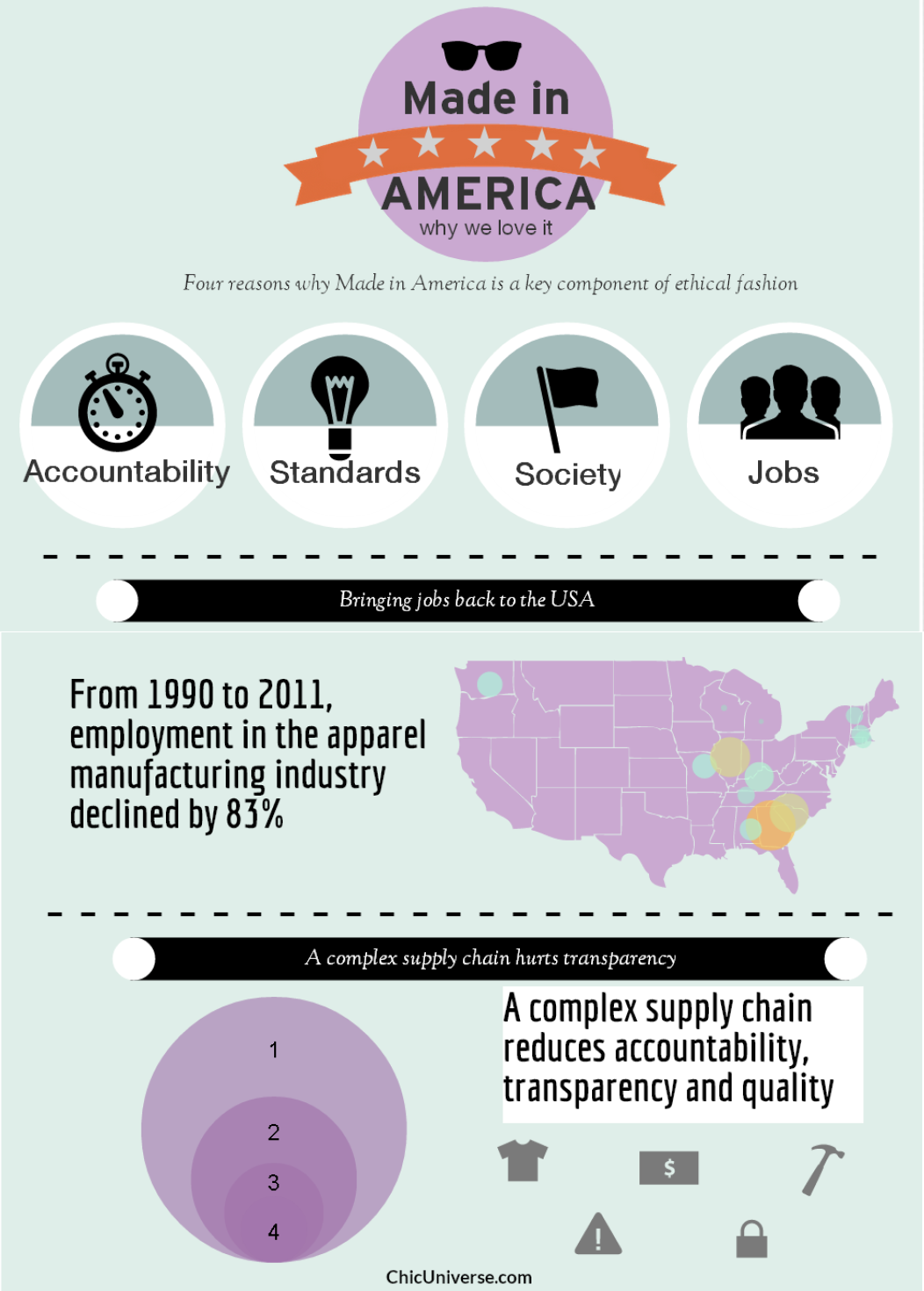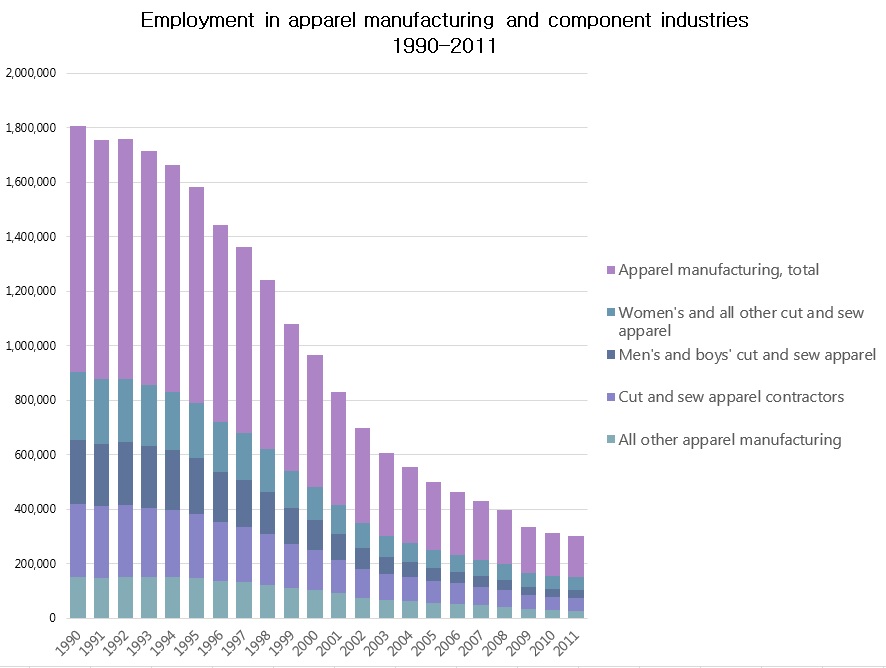It’s easy to feel overwhelmed by the horrifying stories of human rights violations perpetuated by the fashion industry and it’s hard to know where to begin if you want to do something about it. For me, one of the easiest check points when evaluating the quality and integrity of a brand has be to check the tag for a happy “Made in the USA”, of course, I live in California, so please understand that my perspective is that of an American resident.
1. Accountability. Some of the issues that make us worry about the working conditions in outsourced operations have to do with the fact that there doesn’t seem to be a direct party responsible for such ventures, but rather, the responsibility is diluted throughout the many segments of what has become a convoluted supply chain. When intermediaries and contractors are involved, and the factories are thousands of miles away from the corporate headquarters, it’s just natural that the levels of control and oversight are much lower in comparison to domestic operations.
In the United States, companies are audited and have to comply with a series of regulations, and there are many organizations advocating for more sustainable business practices. State and government regulations are often issued to moderate the role of corporations with their environment and consumers. The 2010 California Transparency in Supply Chains Act is an effort to make companies state their efforts in regards to human trafficking, and its just an example of why it’s easier to feel “safer” about buying Made in America products.
2. Minimum standards. A minimum wage*, minimum acceptable working conditions, no-discrimination policies, worker’s rights to vacation and leave time are some American standards that have almost become moral values. Whether regulated or unregulated, there are many mechanisms in place to ensure that health and humanitarian principles are being met.
3. Public pressure. The common citizen has great power in today’s corporate America; social disobedience and the use of alternative media channels make it so that companies have to keep up with the increasing demands for fairness. corporate responsibility and transparency.
4. Jobs. The single biggest economic indicator still keeping the American economy from fully recovering from the crisis is the unemployment rate, still high at 6.2%, compared to the pre-recession levels of >5%. And just as a reminder, this unemployment rate (taken from the BLS) understates real unemployment, as many people that simply stop looking for a job are not taken into account, making the number of unemployed seem smaller than it is. Some put the real rate at almost double the official rate.
From 1990 to 2011, employment in the US manufacturing sector reduced by 83%, wouldn’t it be nice to get some of those jobs back?
Customers in America AND China are willing to pay more for Made in the USA products, as explained in a study by the Boston Consulting Group, up to 60% more. Are you kidding me? And still companies are reluctant to manufacture here? Well, there are many factors that have been cited as roadblocks for making certain products domestically, infrastructure being one of the main ones, but there is no doubt that the market is going to respond to these consumer preferences. Here are the main findings of BCG’s study:
- About two-thirds of U.S. consumers are willing to pay a premium for ten key product categories that were tested—from baby food and appliances to electronics and apparel.
- The premium they are willing to pay varies, ranging from about 10 percent to more than 60 percent in the categories tested.
- In every one of the ten categories, at least 20 percent of U.S. consumers are willing to pay a premium of more than 10 percent.
- Nearly 60 percent of U.S. consumers had chosen Made in USA products over less expensive Chinese goods at least once in the month before the survey.
This is an exciting time for the Made in America wave and for American businesses, the world is coming full circle on the sourcing topi and we are starting to see the real value of things, not just the price.
* I don’t really believe in the minimum wage, I think it should be dictated by the laws of supply and demand.


